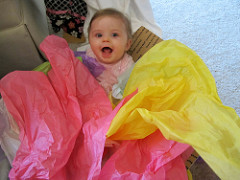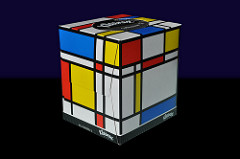Recognition is this week’s topic for #el30 and the abstract asks two very different questions:
- How do we know a course has been successful?
- How do we know what someone has learned?
For me, these are not necessarily related like a geometric proof.
- If this -> then that.
If the course is successful the student learns. As we have seen, perspectives can reveal different meanings and aims. I wonder what the criteria one uses to know a course is successful? There will typically be course aims as well as desired learning outcomes, and perhaps criteria-based assessments or tasks.
Does the student learn? Now this is not something I would ever like to fit into a box, or expect to assess adequately or be able to reward completely. I’ll give you a visual example: If we keep learning in the box it can be neatly folded, condensed, and generally only fits within that box in a certain way. Maybe there are 500 sheets of ‘learning’ packaged neatly in this box.
Now, if we let that learning out of the box, it can look messy, yet feel so freeing. (and even fun)

Outcomes and intentions do not always match, and as long as when designing instruments to judge, we acknowledge that there is at the very least a gap and at the best something beyond what the designers envisaged, that’s a great start.
Stephen mentions that we do need to have a representation of competencies, and as humans it helps to recognise achievement – in terms of motivation, reflection on learning, re-examining goals for the future, and because it is wonderful to foster more genuine celebration of people as they learn, grow, and develop throughout life. The benchmarks, criteria, and the resulting certificates and badges act as a shorthand snapshot to represent and convey an understanding that could otherwise be communicated, but it would take time. In our connected world, for one person to know about another person via commonly understood ground saves a lot of time. Otherwise it could take (literally) months to really figure out someone’s qualifications or skills and, well, can you imagine that?
I really like the question of what else beside/beyond badges do we need (for recognition). I don’t have an answer now. I’ve just put on my thinking cap and wanted to get these initial thoughts down. They’ll develop. I look forward to bumping into other participants in the ether as I read resources and other posts this week.


I have yet to be convinced that badging has much actual currency beyond curating your own memories of experiences … which is not bad but not what the badge proponents envision …
Kevin
Hi Kevin, Me too, really, but I must say seeing a picture of dancing strawberries on twitter made me smile. ( https://twitter.com/dogtrax/status/1068914887571714049 ) There is something about recognition that ‘feels good’ -especially when it is just because, and not warranted by necessity. I think a thank you, a nod, a smile, can be more valuable than a badge – depends who you are and where you are on your learning journey. – and whether you need that piece of paper/badge to show you ‘made the grade’ for external communication purposes.